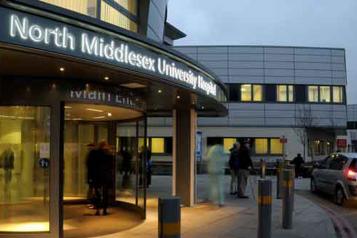CQC maternity survey identifies key areas for improvement for hospital trusts

The survey showed some areas of improvement over the past year, particularly in access to mental health support during pregnancy. However, there remain other aspects of maternity care where people reported a poorer experience and where analysis indicated a longer term decline in positive feedback.
Availability of staff
There has been a five-year downward trend in the number of people reporting that they were ‘always’ able to get help from staff during labour and birth (64% in 2024 and 72% in 2019) and in those who said they were ‘always’ spoken to by staff in a way they could understand (85% in 2024 and 90% in 2019). Just over half (60%) of people surveyed said they saw or spoke to a midwife as much as they wanted after the birth (down from 63% in 2023).
Confidence and trust
Fewer people said they ‘definitely’ had confidence and trust in the staff providing their antenatal care (70% in 2024 compared with 71% in 2023), during labour and birth (77% in 2024 compared with 78% in 2023) and postnatally (69% in 2024 compared with 72% in 2023).
Communications and interactions with staff
A quarter (25%) of respondents felt they did not have the opportunity to ask questions after their baby was born. Only 58% of people surveyed said they were ‘always’ given the information and explanations needed in hospital after birth (compared to 60% in 2023). Fewer people reported ‘always’ feeling listened to by staff providing postnatal care after leaving hospital (75% in 2024 compared with 77% in 2023).
How experience varies for different groups of people
Subgroup analysis of this year’s survey results show disparities in different groups experiences of maternity care. Women who reported their ethnicity as ‘Indian’, ‘Pakistani’ and ‘any other White background’ reported poorer experiences including not feeling listened to and not receiving help during their antenatal and postnatal care. Women with a long-term mental health condition reported poorer experiences around feeling listened to during their antenatal care as well as in the confidence and trust they felt in the staff caring for them during labour and birth.
Local hospital trust results
People rated hospitals in the North Central London Integrated Care Board area largely similar to last year, however there were some changes in people's perception of maternity services and areas for improvement.
Key findings included:
Whittington Hospital
- Most people experienced delay in discharge from hospital
- Pain management after birth was better than expected
- Being treated with respect and dignity was somewhat worse than expected
- The hospital received a score of 7.3 out of 10 for 'Opportunity to ask questions' (Having the opportunity to ask questions about their labour and birth)
North Middlesex Hospital
- Most people experienced delay in discharge from hospital
- The hospital performed worse than expected on 'Not being sent home during labour when they were worried'
- 'Being treated with kindness and compassion during labour and birth' was scored at 9/10
- Pain management after birth was better than expected
Pregnancy, maternity and birth: Experiences of care in Haringey’s seldom heard communities
Healthwatch Haringey research, published in April 2024, showed similar results to the 2024 CQC survey, particularly on communication and staffing levels. We asked diverse maternity service-users about their experiences, including hearing from those who are seldom heard, via a survey, interviews, and focus groups. We asked for feedback on the themes of ‘Communication’, ‘Choice’ and ‘Improvement'.
Communication
We found a number of issues around communication. Contacting a midwife was not always easy, and only half reported having a named midwife. People who spoke English as a second language were less likely to have been provided with information about pregnancy or birth.
Choice
The NHS’s understanding of people’s cultural needs was not always consistent. Nearly a third of survey respondents did not ‘always’ feel able to raise concerns. Problems were attributed to the pressure of understaffing.
Improvement
Service users wanted to see improvements in these areas:
- More nurses
- One midwife throughout pregnancy and birth
- More appointments for post-natal care
- More GP face-to-face appointments
- More staff training
- Better staff behaviour
- Better communication


